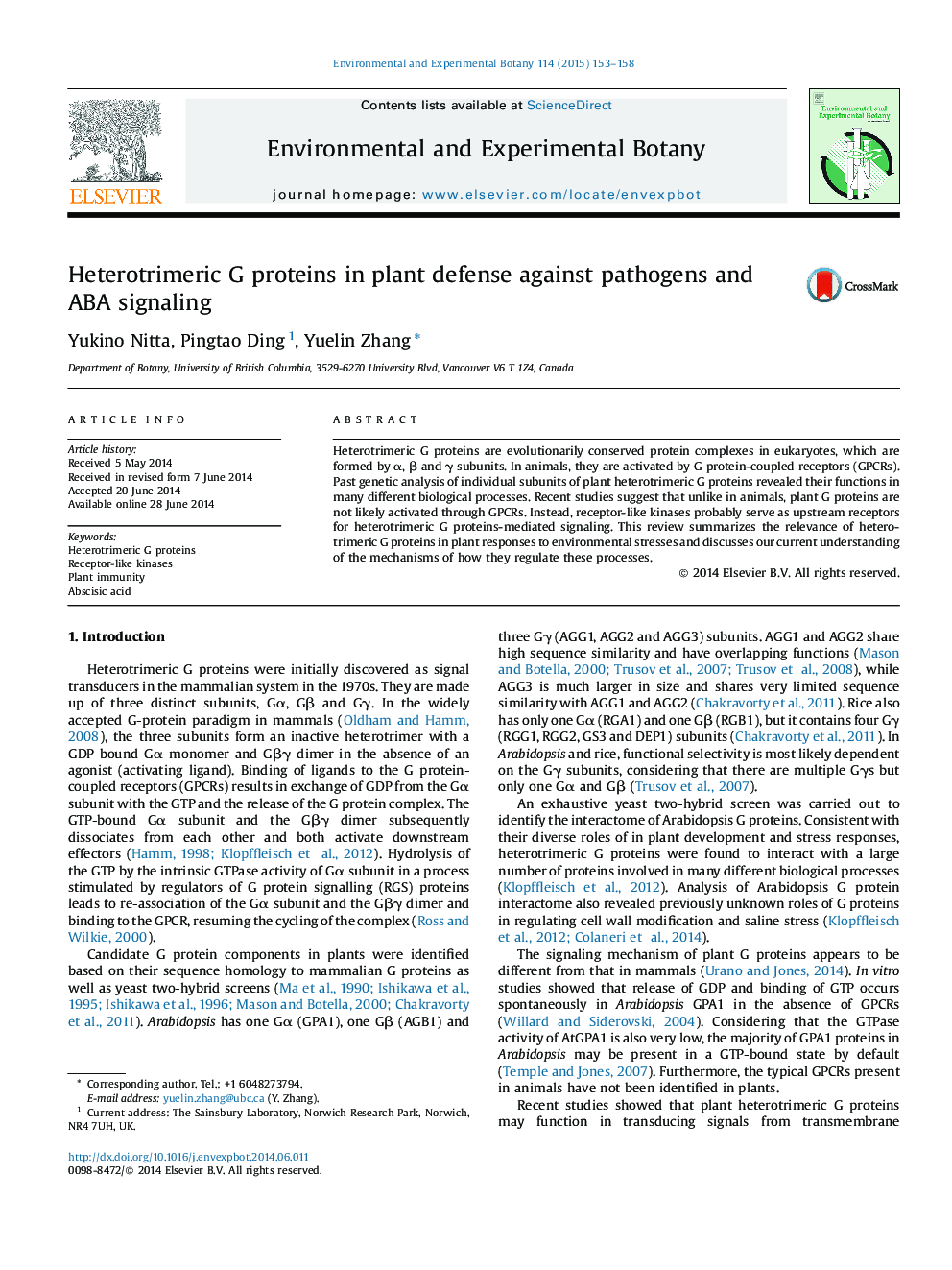| Article ID | Journal | Published Year | Pages | File Type |
|---|---|---|---|---|
| 4554282 | Environmental and Experimental Botany | 2015 | 6 Pages |
•Heterotrimeric G proteins are conserved protein complexes in eukaryotes.•Plant G proteins are not activated by G protein-coupled receptors.•Receptor-like kinases may function as upstream receptors for plant G-proteins.•Roles of G-proteins in plant immunity and ABA signaling are discussed.
Heterotrimeric G proteins are evolutionarily conserved protein complexes in eukaryotes, which are formed by α, β and γ subunits. In animals, they are activated by G protein-coupled receptors (GPCRs). Past genetic analysis of individual subunits of plant heterotrimeric G proteins revealed their functions in many different biological processes. Recent studies suggest that unlike in animals, plant G proteins are not likely activated through GPCRs. Instead, receptor-like kinases probably serve as upstream receptors for heterotrimeric G proteins-mediated signaling. This review summarizes the relevance of heterotrimeric G proteins in plant responses to environmental stresses and discusses our current understanding of the mechanisms of how they regulate these processes.
